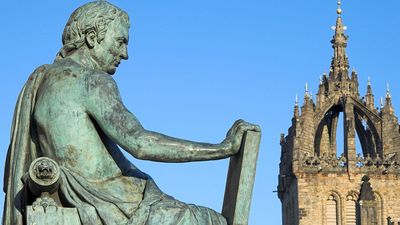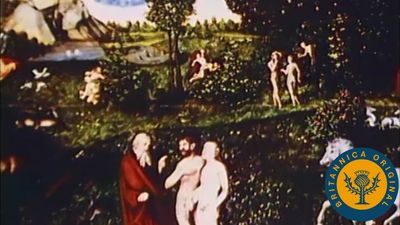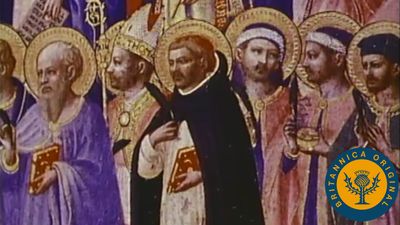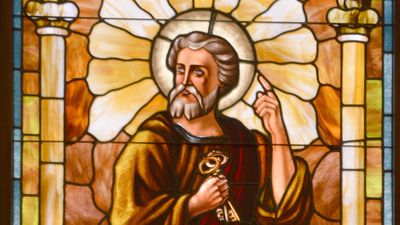Philosophy & Religion
Humans have long pondered not only how we came to be but also why we came to be. The earliest Greek philosophers focused their attention upon the origin and nature of the physical world; later philosophers have theorized about the nature of knowledge, truth, good and evil, love, friendship, and much more. Philosophy involves a methodical assessment of any and all aspects of human existence and experience. The realms of philosophy and religion have sometimes intersected in conducting such inquiries as these. As with philosophy, the study of religion underscores how humankind has long speculated about its origins. The possibility of a higher being (or beings) to which livings things owe their existence has long captived human thought. Many religions also offer their own views on the nature of good and evil, and they may prescribe guidelines and judgment on different kinds of human behavior.
Browse Subcategories
Featured content, December 26, 2022

What Do Eggs Have to Do with Easter?
Easter or not, bunnies don’t lay eggs

The Axial Age: 5 Fast Facts
Enlighten yourself about a period of enlightenment.

Roman Catholic Saints
“All you holy men and women pray for us.”

political philosophy
Political philosophy, branch of philosophy that is concerned, at the most abstract level, with the concepts and arguments...
Philosophy & Religion Quizzes
Philosophy & Religion Videos
Image Gallery
Philosophy & Religion
View Gallery
Philosophy & Religion Subcategories
 Ancient Religions & Mythology
Ancient Religions & Mythology
What did our ancestors believe in? What myths and stories did they use to explain the world around them and find meaning in it? How have their beliefs influenced modern religion and spirituality? Explore these questions and more while discovering notable traditions, figures, and legends that figured prominently in ancient religion and mythology.
Articles
-
Syrian and Palestinian religion
ancient religion
- Anatolian religion
- Baltic religion
 Ethical Issues
Ethical Issues
What moral precepts guide us through tricky situations that may arise in relation to friendships, family, communities, and the work environment? Right and wrong are not always defined in the same way across different cultures.
Articles
-
ethics
philosophy
-
ethical relativism
philosophy
- situation ethics
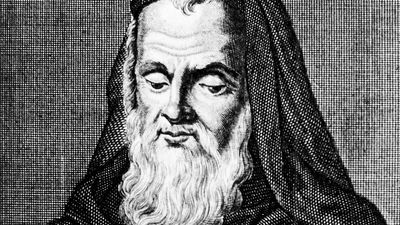 Humanities
Humanities
The humanities are those branches of knowledge that concern themselves with human beings and their culture. The humanities include the study of all languages and literatures, the arts, history, and philosophy.
Articles
- historiography
-
epigraphy
historiography
-
museum
cultural institution
 Philosophers
Philosophers
Here you'll find the thinkers and theorists who have expressed their own ideas about such topics as the nature of humankind's relationship with the metaphysical world, the definitions of truth and knowledge, and the conditions of existence. From ancient Greek philosophers such as Plato and Aristotle to later notable philosophers such as René Descartes and Immanuel Kant, philosophy's great thinkers have approached sensitive ethical and existential issues from a variety of different angles. Their ideas have influenced the way we look at our world and the way we relate to one another as human beings.
Articles
-
Karl Marx
German philosopher
-
Benedict de Spinoza
Dutch-Jewish philosopher
-
Adam Smith
Scottish philosopher
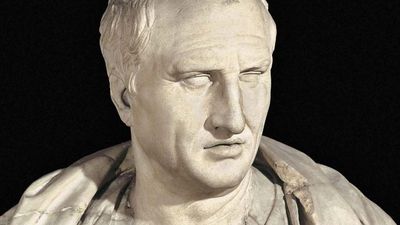 Philosophical Issues
Philosophical Issues
Are you ready to delve into the myriad possible answers to such complex questions as What makes an action virtuous? or What is the nature of consciousness? Do you embrace weighty topics such as the relative merits of empiricism and rationalism? An inquisitive spirit is all but a prerequisite for many of the topics listed here, which deal with the different approaches to and ideas about the big questions of life.
Articles
 Religious Beliefs
Religious Beliefs
Our religious beliefs can affect our lifestyle, our perceptions, and our way of relating to fellow human beings. Is there a higher power (or powers) that governs the universe and judges all of us? Does committing a mortal sin mean the death of a soul, or is there a chance for forgiveness? The answers to such questions differ widely across different religions.
Articles
-
Eastern Orthodoxy
Christianity
-
Judaism
religion
-
eschatology
religion
 Religious Movements & Organizations
Religious Movements & Organizations
This general category includes a selection of more specific topics.
Articles
-
Great Awakening
American religious movement
-
Yazīdī
religious sect
-
Franciscan
religious order
 Religious Personages & Scholars
Religious Personages & Scholars
This general category includes a selection of more specific topics.
Articles
-
Martin Luther
German religious leader
-
St. John Paul II
pope
-
Muhammad
prophet of Islam
 Religious Places
Religious Places
Human beings tend to relate to their religious beliefs through symbolism. Religious and sacred places—common destinations for pilgrims—represent a physical connection that helps believers express their devotion.
Articles
-
Dome of the Rock
shrine, Jerusalem
-
Serapeum
ancient temples, Egypt
-
Varanasi
India
 Sacred Art & Music
Sacred Art & Music
This general category includes a selection of more specific topics.
Articles
-
Wolfgang Amadeus Mozart
Austrian composer
-
Franz Schubert
Austrian composer
-
Gioachino Rossini
Italian composer
 Scriptures
Scriptures
Sacred scriptures of all religions, viewed as the word of God or inspired by God, have influenced the moral and ethical standards of countries, peoples, and religious groups. Their interpretation has long been a subject of discussion and, at times, controversy.
Articles
- Dead Sea Scrolls
-
Shruti
Hindu sacred literature
-
Talmud and Midrash
Judaism
 Spirituality
Spirituality
This general category includes a selection of more specific topics.
Articles
-
nature worship
religion
-
worship
religion
- mysticism








